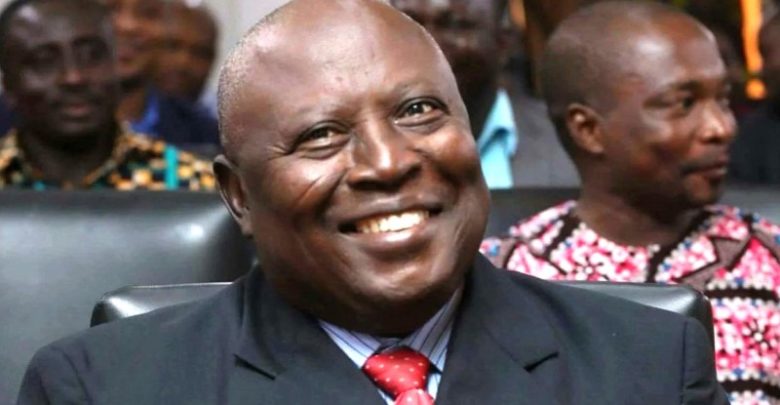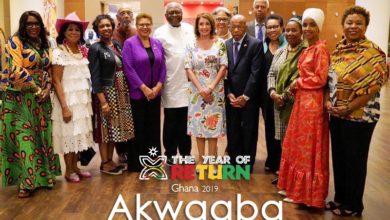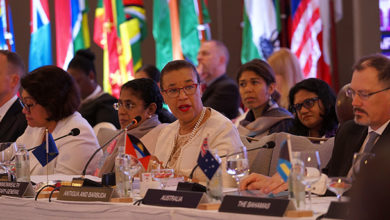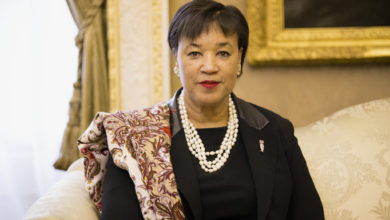
Folks, in an earlier post commenting on proceedings during the vetting of martin Amidu for appointment as the Special prosecutor, I said brazenly that Amidu was casting himself too large. And I still stand by my characterization of him as such.
His own self-assertiveness and boastful comments make me cringe: “I am the best person to be appointed as the Special Prosecutor”; “I will prosecute and not persecute”; I will do this and I will do that… all over the place… all ending in his claim that he would use his office to retrieve all stolen money for Ghana’s good. In effect, making him the Special Prosecutor would eradicate corruption from Ghana!!
Folks, let’s not be hoodwinked by such high-sounding proclamations. We’ve heard more than Amidu is telling us today. As I said earlier on, Ghana’s systemic problems make it difficult for the kind of cherry-picking going on under Akufo-Addo or Rawlings to clean the stables.
Let’s jog our memories a bit. Corruption in Ghana didn’t begin yesterday. It has been ingrained since time immemorial, which explains why at the demise of one government, the in-coming one sets up a commission of inquiry to determine the extent of rot and expose culprits for punishment. The National Liberation Council did so to expose the rot under Nkrumah; Busia sought to find out what happened under the NLC only for Acheampong to take on his own administration for inquiry.
When Rawlings stepped in, his kind of inquiry went beyond rhetoric to physical action to snuff out lives. Three former military heads of state (Afrifa, Acheampong, and Akuffo) paid the ultimate price at the firing squad. Many others associated with the military regimes headed by Acheampong and Akuffo suffered same. The “house-cleaning exercise” had a heavy toll on just anybody fingered as promoting “Kalabule.” The “unprecedented revolutionary action” swept a lot off their feet.
With what consequence to deter corruption? Nothing. The Limann administration took little notice of that draconian measure and went its own, which would return Rawlings to the scene.
On his second coming, Rawlings breathed fire anstod brimstone with his insistence on ridding Ghana of corruption. Many suffered, even as Rawlings’ own “men” exploited the situation to advantage. Can you recall the fate of Major Adutu, Chair of the then Citizens Vetting Committee or others in the Confiscated Houses Commission or One Man One House Committee?
Turning attention to institutional frameworks for “uprooting corruption”, Rawlings established the Commission on Human Rights and Administrative Justice (CHRAJ). Its purview is clear. Interestingly, some of Rawlings’ own henchmen were hauled before this CHRAJ (the late P.V. Obeng, Isaac Adjei-Marfo, Col. Osei-Wusu, and Ibrahim Adam on my mind).
What happened? The CHRAJ found them culpable only to anger Rawlings. His vitriolic damnation of the CHRAJ, which was then headed by Justice Emile Short, shocked Ghanaians. The culprits vowed action to redeem their names but never did anything. Neither were they punished. You see, folks?
The CHRAJ has been with us all these years, investigating cases brought before it but not being able to push the button. Take what happened to Richard Anane under Kufuor when the CHRAJ found him guilty of impropriety only for him to rush to the High Court to be exonerated and reinstated as a minister by Kufuor. The CHRAJ was emasculated at that point for political expediency. It hasn’t regained its momentum ever since.
We are seeing a re-play of that episode in the case of Ken Ofori-Atta over the Kenbond saga. The initial celebration by the Akufo-Addo camp over this matter has turned sharply into something gloomy. Now, Ofori-Atta is marshaling forces to go to court to challenge the CHRAJ over its findings, even though he had earlier impetuously praised the CHRAJ’s findings. That was before the dust settled for him to know what really the CHRAJ established to hurt him and his handlers.
Folks, the long and short of it all is that such a state institution, established within the ambit of the 1992 Constitution isn’t able to help us solve problems on whatever human rights and administrative justice entail.
(Shouldn’t we slot in Rawlings’ own case here? His wife was put on trial for corruption only for Kufuor to free her. Rawlings had for long denied taking any money for the dreadful Nigerian leader, Gen. Abacha, only to own up after more than 10 years that he took 2 million Dollars. What for? An apostle of probity and accountability falling on his own sword? Come on!! No investigation into the matter? What moral justification does he have to be pontificating about corruption, then?).
Now, Akufo-Addo has added another conundrum in the form of the Office of Special Prosecutor. All that has emerged thus far is the politically charged claim that this Office will solve problems to rid Ghana of corruption. I have already laughed myself lame in scorning such a stance.
This Office is nothing but a mere shell without substance. It cannot rid Ghana of corruption. At least, precedent guides us to know what happens in the “Ghanaian situation”. Martin Amidu’s “show-show” at his vetting speaks volumes to reinforce my disdain.
Added to that is the fact that the Ghanaian system is really sluggish in dealing with cases of legal import. It is not as if once someone is identified as corrupt and processed for trial, everything will move on smoothly and speedily for him/her to be disposed of or for the allegedly stolen money recouped for Ghana’s good. It is not a roller-coaster ride to be expected.
We already have evidence of cases dragging on at the courts for decades, which itself prepares the ground for corruption to calcify. The Judiciary is its own doomsayer. Anas Aremeyaw Anas has already revealed it all.
And we can tell from the on-going trial of officials of the National Communications Authority (NCA) and national security in connection with the alleged 4 million-Dollar deal that nothing is smooth-sailing in cases of corruption being prosecuted. The technicalities have already pushed this case into the folder of long-lasting ones. Nothing strange.
So will it be for anything that the Office of the Special Prosecutor does. Will Akufo-Addo establish special
courts for this office? And what will be put in place to circumvent the technicalities that stall speedy trials?
How different will such courts be from Rawlings’ Public Tribunals, anyway? (We recall here how Akufo-Addo’s “Fast-Track Courts” have abysmally performed and lost focus since their hasty establishment.) What new measures will be used to make the work of the Office of Special Prosecutor more functional? I have serious doubts, reservations, and misgivings.
That is why I easily laugh to scorn all the boasts coming from Martin Amidu and his handlers. Already, we can see the huge impediments and foresee the danger ahead.
Here is our prognostication:
In his over-enthusiasm to make a name for himself or to nail the NDC elements he considers as impediments to his efforts at realizing his own political ambitions, an overly embittered Amidu will seek to do things his own way only to hit the brickwall set up by the powers-that-be (We are talking about the Ghanaian situation!). Then, he will become frustrated, throw up his arms in despair and begin accusing officialdom of frustrating him. He will forcefully poke ribs to have his own way.
What next? John Ndebugri has already said it. He will attempt bulldozing his way through only to be hampered. At that point, his anger will boil over and he will spit fire. He will be stopped in his stride, which will force him back to the path he had toed in political office under the NDC regimes of Rawlings and Atta Mills to attempt being the MAN that he has all along thought himself to be. The result? Resignation. What next? Phew!!!!!
I shall return…
By Michael J.K. Bokor, Ph.D.




